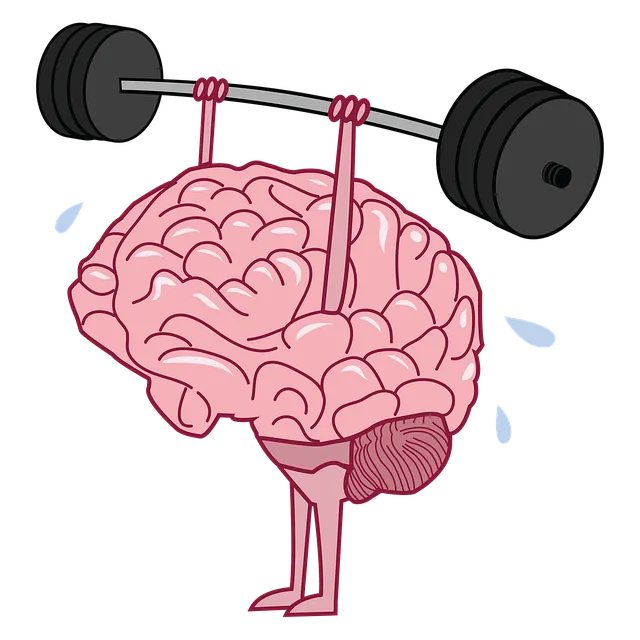Northglenn Kaiser Permanente behavioral health services emphasizes that social skills, often overlooked but critical, play a significant role in mental wellness. Their podcast series and coaching programs teach essential communication techniques like active listening, assertiveness, and conflict resolution to enhance relationships and improve mental health. As leading providers of specialized training for mental health professionals, they offer advanced trauma support and culturally sensitive care, addressing diverse community needs. Using evidence-based practices including mindfulness, their social skills training programs help individuals with anxiety, depression, and schizophrenia overcome challenges in social interactions, resulting in improved quality of life and relationships through enhanced communication and relationship-building skills.
Social skills training is a powerful tool in managing mental health conditions, fostering better relationships, and improving overall well-being. This article explores the vital connection between social interactions and mental health, highlighting the role of Northglenn Kaiser Permanente Behavioral Health Services in providing specialized programs. We delve into common challenges faced by individuals with mental health issues in social settings, offer effective strategies for communication and relationship building, and share inspiring success stories from participants.
- Understanding the Link Between Social Skills and Mental Health
- The Role of Northglenn Kaiser Permanente Behavioral Health Services in Training
- Identifying Challenges: Common Mental Health Conditions and Social Interaction
- Strategies for Effective Communication and Relationship Building
- Real-World Application: Success Stories from Participants
Understanding the Link Between Social Skills and Mental Health

Social skills are a vital component of mental wellness, often overlooked but deeply intertwined with overall health. At Northglenn Kaiser Permanente behavioral health services, we recognize that effective communication and social interaction play a pivotal role in managing and improving mental health conditions. The link between these two aspects is complex; individuals with robust social skills tend to have better coping mechanisms, stronger support systems, and improved emotional regulation, all of which contribute to enhanced mental wellness.
The Mental Wellness Podcast Series Production highlights the importance of teaching and honing social skills as a part of holistic treatment plans. Through various coaching programs development, individuals can learn effective strategies for building connections, assertiveness, active listening, and conflict resolution—skills that empower them to navigate social situations with confidence and reduce anxiety or depression symptoms. By integrating these techniques into their daily lives, people can foster meaningful relationships, improve their overall mental wellness, and lead more fulfilling lives.
The Role of Northglenn Kaiser Permanente Behavioral Health Services in Training

Northglenn Kaiser Permanente Behavioral Health Services plays a pivotal role in equipping mental health professionals with essential tools for their practice. They offer comprehensive training programs designed to enhance the skills and knowledge base of healthcare providers, ensuring they are well-prepared to support individuals struggling with various mental health conditions. Their expertise extends beyond standard therapy techniques; they specialize in risk management planning for mental health professionals, a crucial aspect of ensuring patient safety and care quality.
The services also include trauma support, recognizing that many clients carry the weight of traumatic experiences. By incorporating these specialized programs into their training curriculum, Northglenn Kaiser Permanente Behavioral Health Services fosters culturally competent healthcare providers. This approach not only benefits individual patients but contributes to a more inclusive and effective mental health care system as a whole, addressing diverse needs within the community.
Identifying Challenges: Common Mental Health Conditions and Social Interaction

Mental health conditions can significantly impact an individual’s ability to engage in social interactions, often presenting unique challenges that require tailored support. Conditions such as anxiety disorders, depression, and schizophrenia can make social situations overwhelming or even terrifying for those affected. For instance, individuals with social anxiety might experience intense fear and avoidance of social gatherings, impacting their overall quality of life. Similarly, people with bipolar disorder may struggle with emotional regulation during manic or depressive episodes, leading to impulsive behaviors or social withdrawal.
Northglenn Kaiser Permanente behavioral health services recognize these complexities and offer specialized programs to address the social skills training needs of their patients. By employing evidence-based practices, therapists facilitate the emotional healing processes through mindfulness techniques and mind over matter principles. Additionally, cultural sensitivity in mental healthcare practice is integral to ensuring that diverse patient populations feel understood and supported, fostering a safe environment for open communication and skill development.
Strategies for Effective Communication and Relationship Building

At Northglenn Kaiser Permanente behavioral health services, communication and relationship-building skills are key components in supporting individuals with mental health conditions. Effective strategies in this area can foster a sense of belonging and empowerment for those facing challenges like anxiety, depression, or trauma. One powerful approach is active listening, where healthcare providers show genuine interest and understanding by paraphrasing, asking open-ended questions, and maintaining eye contact.
Additionally, cultural competency training for both patients and providers is essential. This involves learning to navigate differences in communication styles, values, and beliefs, ensuring everyone feels heard and respected. Managing stress through techniques like mindfulness and emotional regulation can also enhance interactions by promoting calmness and clear thinking during potentially charged conversations. These strategies collectively contribute to building strong foundations for healthy relationships within the healthcare setting.
Real-World Application: Success Stories from Participants

Many participants in Northglenn Kaiser Permanente behavioral health services’ Social Skills Training programs have seen remarkable improvements in their lives. These individuals, grappling with various mental health conditions, have learned and applied valuable social skills that directly translate to real-world interactions. Through role-playing exercises, group discussions, and peer feedback sessions, they’ve gained confidence in initiating conversations, maintaining eye contact, and expressing themselves effectively.
Success stories abound, from enhanced connections at work and school to improved relationships with family and friends. Some participants have even started volunteering or engaging in public awareness campaigns development, sharing their journeys to destigmatize mental health issues. This practical application of learned skills underscores the power of Social Skills Training as a crucial component of mood management for those seeking holistic support from Northglenn Kaiser Permanente behavioral health services.
Social skills training, as offered by Northglenn Kaiser Permanente Behavioral Health Services, plays a pivotal role in managing mental health conditions. By addressing communication barriers and fostering relationship-building strategies, individuals equipped with these skills can navigate social interactions more confidently. The success stories shared highlight the transformative power of such programs, demonstrating improved mental well-being and enhanced quality of life for participants. This tailored approach to behavioral health care is a promising game-changer in supporting individuals with mental health challenges.






